 Nightfall is the time when desperate men commit desperate acts. 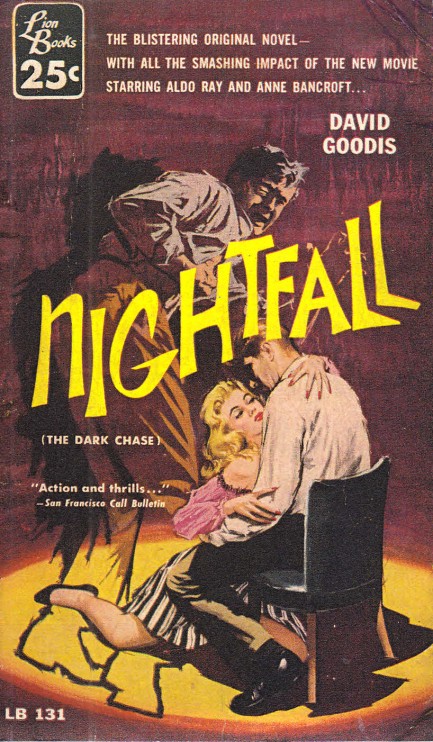
David Goodis was one of the mid-century era's most successful crafters of crime fiction. Movies based on his books include Dark Passage, the visually dazzling 1983 French film La lune dans le caniveau (The Moon in the Gutter), and the brilliant thriller The Burglar. His drama Nightfall, aka The Dark Chase, tells the story of a man who stumbles upon bank robbers, comes into possession of their loot, but loses it in a wild panic while fleeing a shooting. Months later and many states away, he's trying to make a new life but soon learns cops are trailing him trying to solve the robbery, and the surviving bank robbers have surfaced to demand the cash. He'd better find it or he's mega-screwed, but he literally can't remember what happened to it. He's blacked it out. Like other Goodis novels Nightfall became a movie, though it's hard to see cinema in it when you read it. But Jacques Tourneur had no issues, crafting a 1956 film noir starring Aldo Ray and Anne Bancroft. For us the novel, with its hallucinatory nature and quasi-amnesiac protagonist, wasn't a top thriller, but it was satisfying enough. This Lion Books edition came in 1956 with uncredited cover art.
 When the sun's away the crooks will slay. 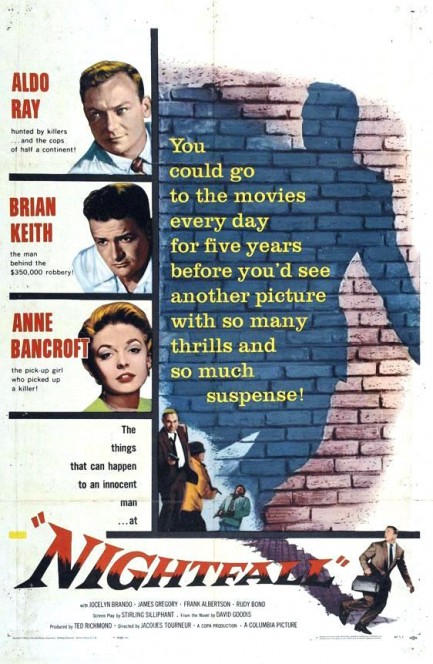
And speaking of the film noir starring Aldo Ray and Anne Bancroft, we watched it right after finishing the book, and though the novel was pretty dark, the filmmakers decided a little upbeat mood music was on order, so they got the immortal jazz crooner Al Hibbler to sing a theme song. Everybody knows this one. Join right in: Nightfaaaaaaall... and youuuuuuuuuuu... lovely you... underneath the wreath of heaven's pale blue... you are poetry (possibly haiku)... you are melody (maybe in d minor, the saddest of keys)... You get the idea. Don't let us turn you off this film. The theme song is nothing the mute button won't fix.
As we mentioned in our post on the source novel, Nightfall was directed by Jacques Tourneur, the heavyweight talent behind the film noir monument Out of the Past, and he has the kind of skills that make an early shot of co-star James Gregory getting on a bus an artistic achievement. Gregory plays an insurance investigator on the trail of $350,000 worth of missing heist loot, and, as in the novel, the innocent schmuck who accidentally got stuck with it lost it and doesn't remember how or where. That person is played by Ray, who's great in this, as he relates his dilemma in flashbacks and desperately tries to deal with the two murderous robbers who originally stole the cash.
Nightfall is no Out of the Past, but it's a solid film noir entry, well worth watching. Besides Ray and Gregory, the two robbers Brian Keith and Rudy Bond are good, and honey-voiced Bancroft as the femme fatale handles her pivotal role nicely. Credit here also goes to Burnett Guffey, who photographed the movie, and added to his long list of beautiful film noir achievements—Johnny O'Clock, Night Editor, In a Lonely Place, The Sniper, Private Hell 36, Screaming Mimi, and a portfolio of other films. Put Nightfall in your queue. It'll be worth it—once the theme song is over. It premiered in the U.S. today in 1956 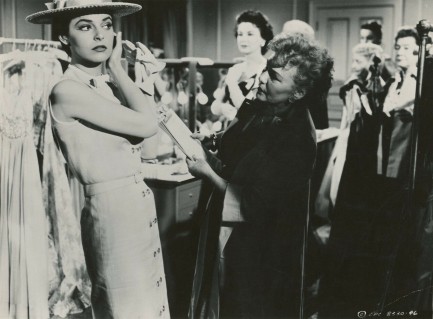 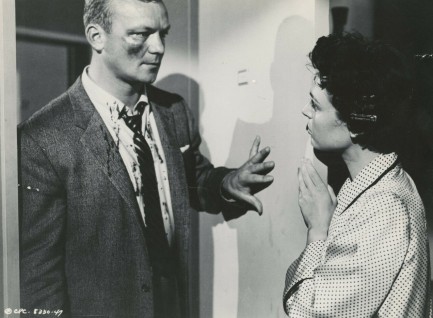 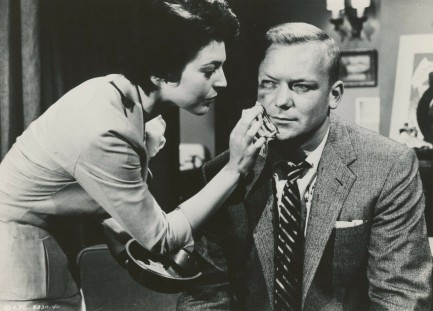 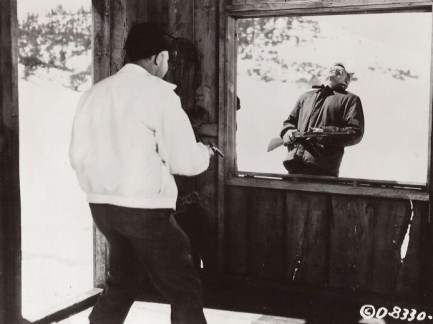 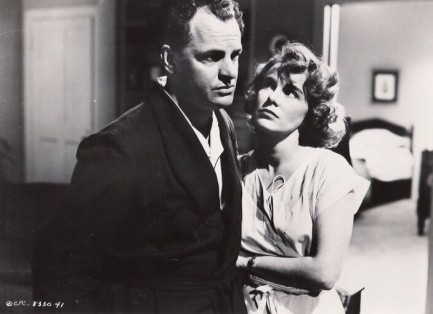 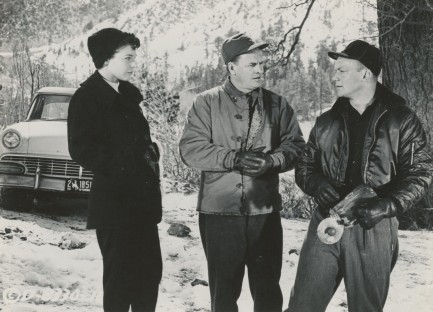 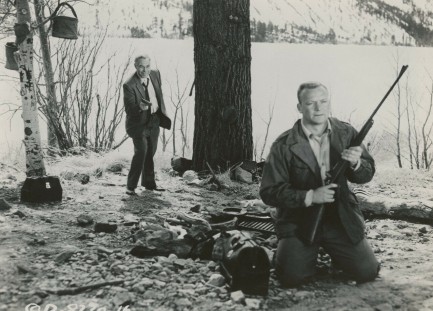 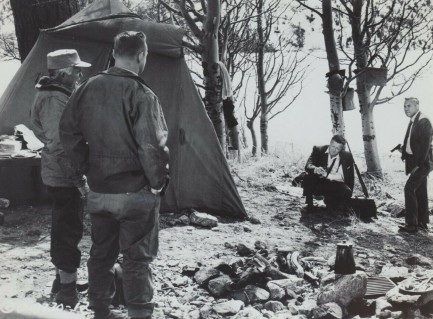 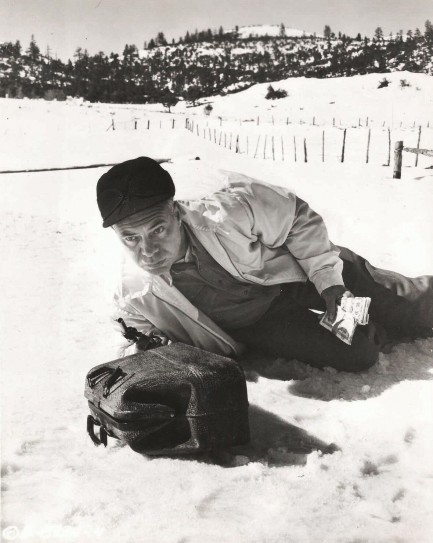 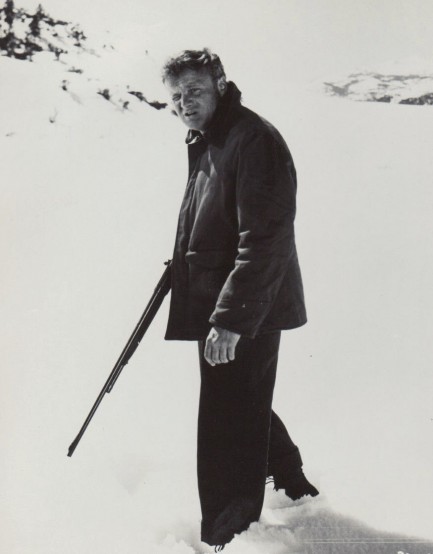 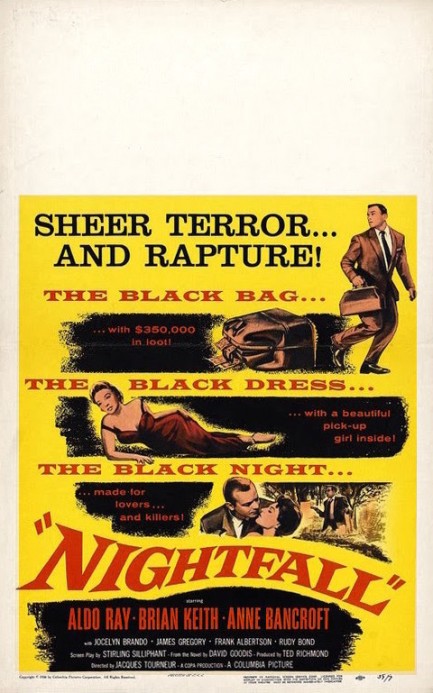
|
 |

The headlines that mattered yesteryear.
1939—Batman Debuts
In Detective Comics #27, DC Comics publishes its second major superhero, Batman, who becomes one of the most popular comic book characters of all time, and then a popular camp television series starring Adam West, and lastly a multi-million dollar movie franchise starring Michael Keaton, then George Clooney, and finally Christian Bale. 1953—Crick and Watson Publish DNA Results
British scientists James D Watson and Francis Crick publish an article detailing their discovery of the existence and structure of deoxyribonucleic acid, or DNA, in Nature magazine. Their findings answer one of the oldest and most fundamental questions of biology, that of how living things reproduce themselves. 1967—First Space Program Casualty Occurs
Soviet cosmonaut Vladimir Komarov dies in Soyuz 1 when, during re-entry into Earth's atmosphere after more than ten successful orbits, the capsule's main parachute fails to deploy properly, and the backup chute becomes entangled in the first. The capsule's descent is slowed, but it still hits the ground at about 90 mph, at which point it bursts into flames. Komarov is the first human to die during a space mission. 1986—Otto Preminger Dies
Austro–Hungarian film director Otto Preminger, who directed such eternal classics as Laura, Anatomy of a Murder, Carmen Jones, The Man with the Golden Arm, and Stalag 17, and for his efforts earned a star on Hollywood's Walk of Fame, dies in New York City, aged 80, from cancer and Alzheimer's disease. 1998—James Earl Ray Dies
The convicted assassin of American civil rights leader Martin Luther King, Jr., petty criminal James Earl Ray, dies in prison of hepatitis aged 70, protesting his innocence as he had for decades. Members of the King family who supported Ray's fight to clear his name believed the U.S. Government had been involved in Dr. King's killing, but with Ray's death such questions became moot.
|

|
|

It's easy. We have an uploader that makes it a snap. Use it to submit your art, text, header, and subhead. Your post can be funny, serious, or anything in between, as long as it's vintage pulp. You'll get a byline and experience the fleeting pride of free authorship. We'll edit your post for typos, but the rest is up to you. Click here to give us your best shot.

|
|



















































































